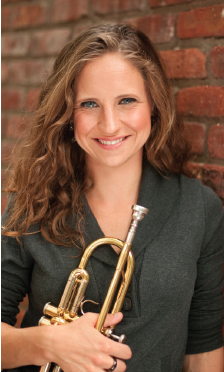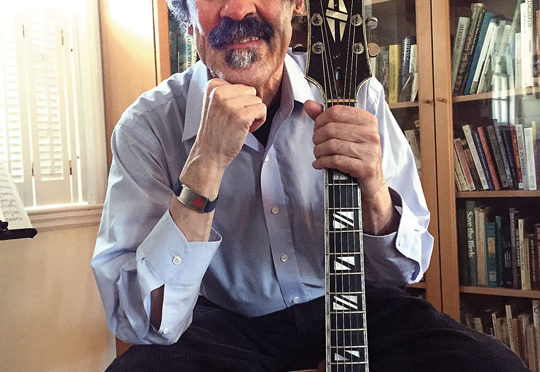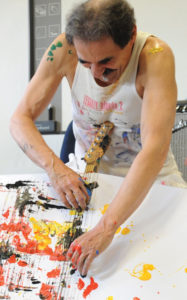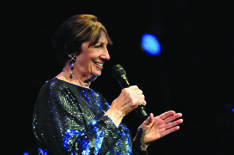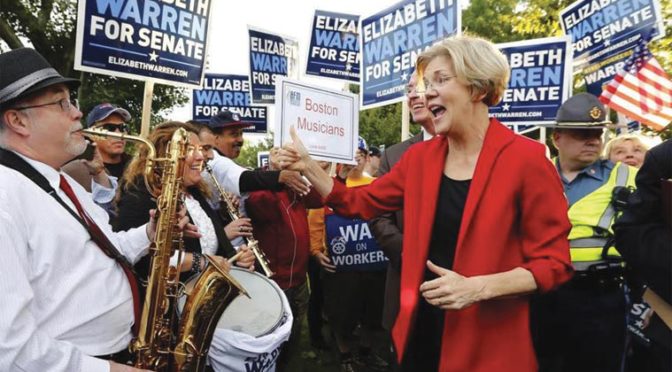Practicing gratitude is commonly acknowledged to be one of keys to living a healthy, balanced life. Trumpet player Emma Stanley of Local 9-535 (Boston, MA) has this gratitude thing down: She not only practices it, she lives it. Stanley plays in the US national tour of Jesus Christ Superstar, Andrew Lloyd Webber’s 1970 rock opera, and she says she feels fortunate every single day to get to do what she loves.
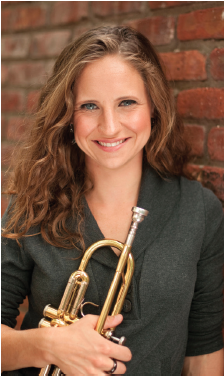
“To get to play this music for a living is a dream job,” says Stanley, a Portland, Maine, native who joined the tour last September—and is also grateful for how that came about. “I saw the job listed on playbill.com,” she explains. “I sent in a resume, and they asked for a video audition. They were already doing live auditions in New York, so it was last-minute. Thankfully, they ended up not hiring anyone, so I lucked out.”
Stanley comes to Superstar with a long history of connections to the show, having constantly heard the record album at home growing up, when her older brother would play it. She remembers singing and dancing to it in the family living room, and she fell in love with the songs. Her brother was also a trumpet player, so it’s equally unsurprising that she picked up that as well, learning it alongside the piano which she started at the age of four.
A 2009 graduate of Peabody Conservatory, Stanley’s first job was playing trumpet on a cruise ship. From there, she made her way to touring shows, traveling on and off for several years. The big difference, she says, is that those tours were non-union. “Sometimes we’d be on a bus six to 10 hours a day and then go straight into a show, eight shows a week. It was good, steady work, but it was exhausting without a union to look out for our quality of life.”
Life is quite different now since she joined the AFM in October 2019, and for that Stanley is—you guessed it—grateful. “For starters, the pay is better,” she says. “The AFM guarantees I’ll be compensated for extra rehearsals, sound checks, overtime, etc.” Stanley also plays keyboards for Superstar, so she gets additional pay for doubling and electronics. “That is just mind-blowingly wonderful. In a union gig you feel taken care of, respected, and valued for your abilities and expertise.” And gone are those endless days on the road followed by a show. Traveling for Superstar involves fewer buses and more planes, for one thing. “The AFM also stipulates that we can’t go over a certain number of hours for travel days. If we do, we get compensated for that, too.”
Even with the support of the AFM, it would be reasonable to assume the repetition of eight shows a week might be a challenge. But not for Stanley. Gratitude to the rescue once more: “It helps that Jesus Christ Superstar is one of my favorite shows. And it also helps that it’s relatively short,” she laughs. “But on the rare occasion that it starts feeling like a job, I just tell myself that I’m fortunate to play the trumpet for a living, and that’s amazing. So many other people go to jobs for eight hours a day and hate it.”
Stanley acknowledges that staying healthy, physically and mentally, is a big challenge with any touring show. She tries to eat well and get her mind off the job. “When we land in a city, we typically have the whole week where we don’t work till the evening, so I go explore,” she says, adding that it’s also tough to miss family and friends. “I have little nieces, and I obviously don’t see them as often as I might like.” But Stanley is thankful to have a supportive family back home in Portland. “They are used to it by now, since I’ve been touring for so many years. And when I do get home, my friends still get me to play on gigs with my old bands. That helps a lot.”
Stanley has at least another year of touring with Jesus Christ Superstar, and she plans to stick with the road life. “Mixing it up is great whenever I can, maybe a wedding, a funk band, or a classical chamber gig. But if I had to pick an overall favorite, it would be the theater pit. I feel really grateful to be where I’m supposed to be, and that the AFM has my back.”


